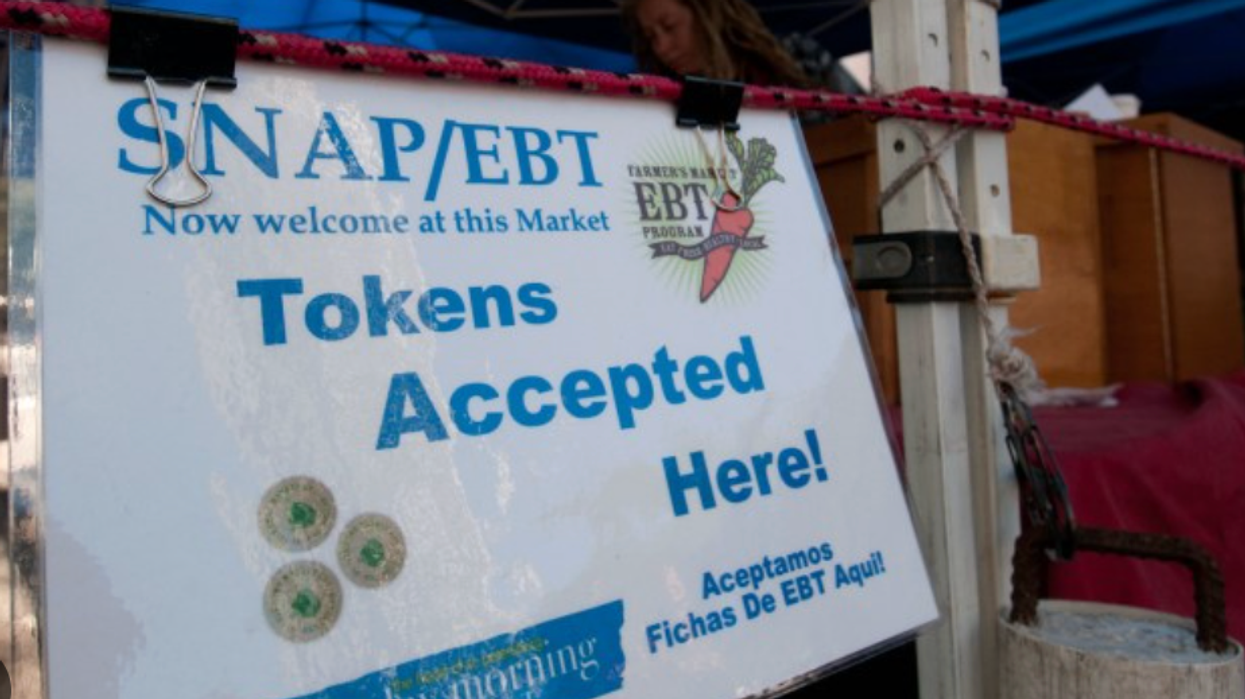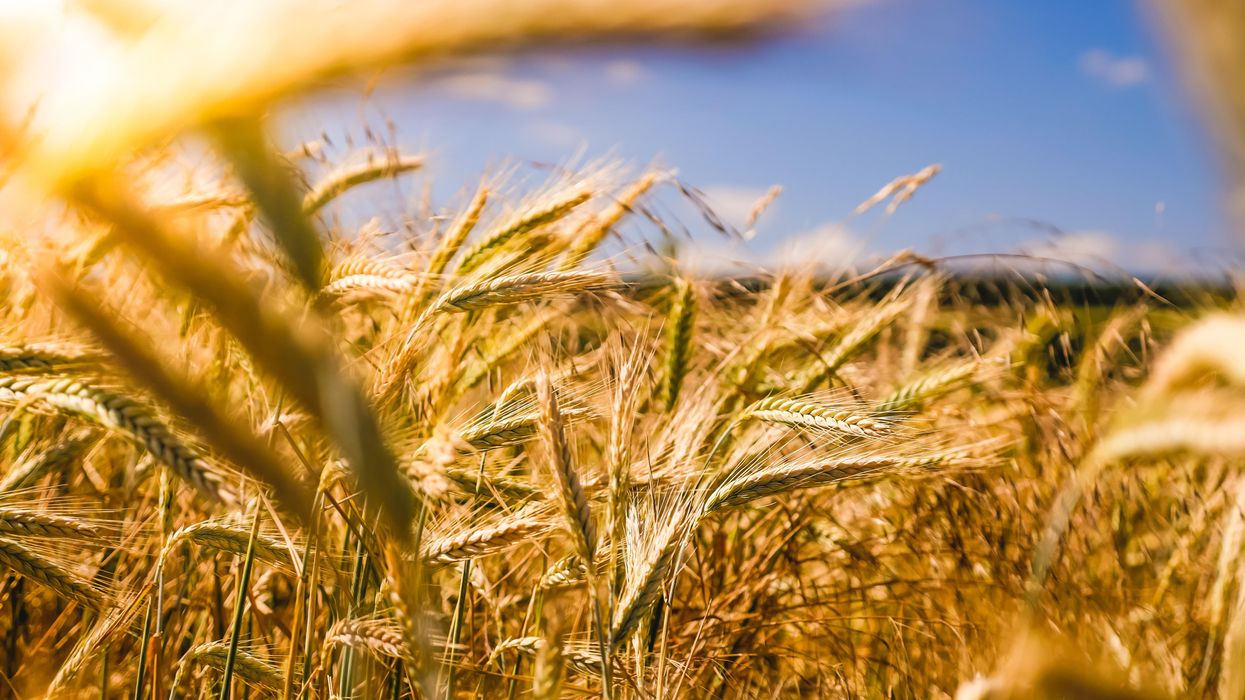As the scale of the coronavirus pandemic dawned on Americans during the month of March, most of the media attention was given to white people like Tom Hanks, while the danger of coronavirus to black people went largely underreported by American media. It was around this time when both the media and the White House decreed it a national emergency.
The early cases that made the news and caught everybody's attention were mainly wealthy white people who'd traveled to the West Coast from Asia and the East Coast from Europe.
Trump's official national emergency declaration came on March 11, and most of the country shut down or at least went partway toward that outcome. The economy crashed and millions of Americans were laid off, but saving lives was, after all, the number one consideration.
Trump put medical doctors on TV daily, the media was freaking out about refrigerated trucks carrying bodies away from New York hospitals, and doctors and nurses were our new national heroes.
And then came April 7, 2020.
I remember that week vividly; it was as if a light switch had been flipped, and I commented on it on the air at the time (and many times since).
April 7 was the day that America learned that the majority of the people who were dying from COVID-19 were either elderly, black or Hispanic. Not so many white guys, after all.
Exactly one month earlier, on March 7, Trump had played golf at his club in West Palm Beach, met with Brazilian strongman Jair Bolsonaro at Mar-a-Lago, and visited the CDC headquarters in Atlanta. Over the previous week, U.S. deaths had risen from single digits to more than 20.
During the following month, all hell broke loose in the United States and around the world. Italy and Spain were melting down, as was the U.S. economy; cases were exploding in New York. The nation was united in the hope that the disease could be stopped dead in its tracks.
Then came April 7, when the New York Times ran a front-page story with the headline: "Black Americans Face Alarming Rates of Coronavirus Infection in Some States." Across the American media landscape, similar headlines appeared at other outlets, and the story was heavily reported on cable news and the network news that night.
American conservatives responded with a collective, "What the hell?!?"
Rush Limbaugh declared soon after that "with the coronavirus, I have been waiting for the racial component." And here it was. "The coronavirus now hits African Americans harder—harder than illegal aliens, harder than women. It hits African Americans harder than anybody, disproportionate representation."
Claiming that he knew this was coming as if he were some sort of a medical savant, Limbaugh said, "But now these—here's Fauxcahontas, Cory Booker, Kamala Harris demanding the federal government release daily race and ethnicity data on coronavirus testing, patients, and their health outcomes. So they want a database to prove we are not caring enough about African Americans…"
It didn't take a medical savant, of course. African Americans die disproportionately from everything, from heart disease to strokes to cancer to childbirth. It's a symptom of a racially rigged economy and a health care system that only responds to money, which America has conspired to keep from African Americans for more than 400 years. Of course they're going to die more frequently from coronavirus.
But the New York Times and the Washington Post simultaneously publishing front-page articles about that disparity with regard to COVID-19, both on April 7, echoed across the right-wing media landscape like a Fourth of July fireworks display.
Tucker Carlson, the only primetime Fox News host who'd previously expressed serious concerns about the death toll, changed his tune the same day, as documented by Media Matters for America.
Now, he said, "we can begin to consider how to improve the lives of the rest, the countless Americans who have been grievously hurt by this, by our response to this. How do we get 17 million of our most vulnerable citizens back to work? That's our task."
White people were out of work, and black people were most of the casualties, outside of the extremely elderly. And those white people need their jobs back!
Brit Hume joined Carlson's show and, using his gravitas as a "real news guy," intoned, "The disease turned out not to be quite as dangerous as we thought."
Left unsaid was the issue of whom it was not "quite as dangerous" to, but Limbaugh listeners and Fox viewers are anything but unsophisticated when it comes to hearing dog-whistles on behalf of white supremacy.
More than 12,000 Americans had died from coronavirus by April 7, but once we knew that most of the non-elderly victims were black, things were suddenly very, very different. Now it was time to quit talking about people dying and start talking about white people getting back to work!
It took less than a week for Trump to get the memo, presumably through Fox and Stephen Miller. On April 12, he retweeted a call to fire Dr. Anthony Fauci and declared, in another tweet, that he had the sole authority to open the United States back up, and that he'd be announcing a specific plan to do just that "shortly."
On April 13, the U.S. Chamber of Commerce published a policy paper titled "Implementing a National Return to Work Plan."
Unspoken but big on the agenda of corporate America was the desire to get the states to rescind their stay-home-from-work orders so that companies could cut their unemployment tax losses.
When people file unemployment claims, those claims are ultimately paid for by the companies themselves, and with a high number of claims, a company will see a substantial future increase in their unemployment insurance premiums/taxes. If the "stay home" orders were repealed, workers could no longer, in most states, file for or keep receiving unemployment compensation.
On April 14, Freedomworks, the billionaire-founded and -funded group that animated the Tea Party against Obamacare a decade earlier, published an op-ed on their website calling for an "economic recovery" program including an end to the capital gains tax and a new law to "shield" businesses from lawsuits.
Three days after that, Freedomworks and the House Freedom Caucus issued a joint statement declaring that "it's time to re-open the economy."
Freedomworks published their "#ReopenAmerica Rally Planning Guide" encouraging conservatives to show up "[i]n-person" at their state capitols and governors' mansions, and, for signage, to "Keep it short: 'I'm essential,' 'Let me work,' 'Let Me Feed My Family'" and to "Keep them homemade."
One of the first #OpenTheCountry rallies to get widespread national attention was April 18 in New Hampshire. Over the next several weeks, rallies had metastasized across the nation, from Oregon to Arizona, Delaware, North Carolina, Virginia, Illinois and elsewhere.
One that drew particularly high levels of media attention, complete with swastikas, Confederate flags, and assault rifles, was directed against the governor of Michigan, rising Democratic star Gretchen Whitmer.
When Rachel Maddow began reporting on meatpacking plants that had become epicenters of mass infection, the conservative Chief Justice of the Wisconsin Supreme Court pointed out that the virus flare wasn't coming from the "regular folks" of the surrounding community. Although the majority of the meat plant workers were Hispanic and the majority of the surrounding communities were white, her defenders suggested it was just a slip of the tongue.
Nonetheless, the conservative meme was now well established.
About a third of the people the virus killed were old folks in nursing homes. Which, right-wing commentators said, could be a good thing for the economy because they're just "useless eaters" who are spending our Medicaid and Social Security money and are on death's door anyway.
For example, Texas's Republican Lt. Governor Dan Patrick told Fox News, "Let's get back to living… And those of us who are 70-plus, we'll take care of ourselves."
A conservative town commissioner in Antioch, California, noted that losing "many elderly [people]… would reduce burdens in our defunct Social Security System" and "free up housing." He added, "We would lose a large portion of the people with immune and other health complications. I know it would be loved ones as well. But that would once again reduce our impact on medical, jobs, and housing."
It came to Trump's attention that the biggest outbreaks were happening in prisons and meatpacking plants, places with few white people (and the few whites in them were largely poor and thus seen as disposable). Trump's response to this was to issue an executive order using the Defense Production Act (which he had hesitated to use to order the production of testing or PPE equipment) on April 28 to order the largely Hispanic and black workforce back into the slaughterhouses and meat processing plants.
African Americans were dying in our cities, Hispanics were dying in meatpacking plants, the elderly were dying in nursing homes.
But the death toll among white people, particularly affluent white people who were less likely to be obese, have hypertension or struggle with diabetes, was relatively low. And those who came through the infection were presumed to be immune to subsequent bouts, so we could issue them "COVID Passports" and give them hiring priority.
The only thing Republicans had overlooked in their master plan to help out the master race was the very real consequence of Reaganomics across the states of the former Confederacy.
Southern states had fought against any sort of state- or federally-funded health care plans since Reconstruction, claiming libertarian ideology while, in fact, their animus was directed at people of color.
Caught in those crosshairs, however, just as had been the case prior to the Civil War, were poor whites.
Many of the same political and economic factors that put African Americans at risk for the past two centuries were also used against poor whites.
In the 1930s when Huey Long was Louisiana's senator and governor, he explicitly reached out to impoverished white people.
As the Encyclopedia Britannica notes, "Always the champion of poor whites, he effected a free-textbook law, launched a massive and very useful program of road and bridge building, expanded state university facilities, and erected a state hospital where free treatment for all was intended. He was opposed to excessive privileges for the rich, and he financed his improvements with increased inheritance and income taxes as well as a severance tax on oil…"
Long's "every man a king" stump speech was particularly intolerable to Louisiana's wealthy oligarchs, opening as it did with the line, "Is that a right of life, when the young children of this country are being reared into a sphere which is more owned by 12 men than it is by 120 million people?"
In 1935 Long was assassinated, and it wasn't until 1965 that President Lyndon Johnson would try to get any aid to poor Southern whites with Medicaid and food stamps; that, too, was offensive to the conservative white political structure in the South.
As a result, poor whites in the South are likely to suffer from the diseases and lack of access to health care that make African Americans throughout the country so vulnerable to COVID-19.
And, over the past 40 years, Reaganism has encouraged the spread of deep white poverty from red state to red state. White obesity, diabetes and hypertension are, therefore, overrepresented in poor rural areas as far away as Nebraska and Mississippi.
In fact, the Brookings Institution just reported that of the counties where the virus has most recently exploded, 151 of them went for Trump in 2016 (by an average of 12 percent) and only 25 backed Clinton.
Today, Trump, Fox, and his followers think COVID-19 just kills the elderly, blacks and Hispanics—and they seem comfortable with the needless deaths of people they think are different from themselves.
As it spreads into rural white America, however, they're about to learn otherwise.














